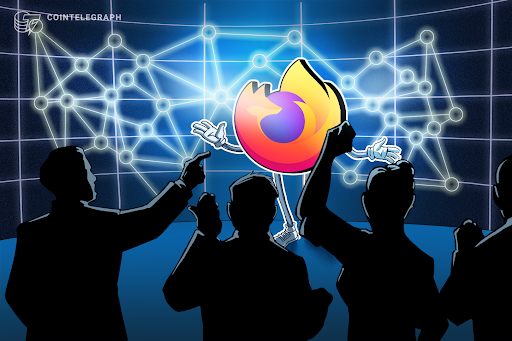Mozilla Inc., which owns the Firefox web browser, has announced that it has completed the acquisition of two Canadian businesses in order to advance its metaverse agenda and allow the entire Hubs community to benefit from Active Replica’s proficiency in creating captivating virtual events.
The company acquired Vancouver-based virtual spaces and events business Active Replica and productivity software company Pulse. As it developed, Mozilla bought the startups. In 2018, Hubs, a VR chat room, explored mixed reality communication. Using mixed reality, you can create virtual spaces on the platform.
Additionally, as Mark Zuckerberg continues to invest in the metaverse, Mozilla is aiming to take advantage of the hype around it.
According to a Mozilla official, the financial terms of any acquisition deal would not be disclosed. The official, however, pointed out that both transactions had been performed during the preceding two weeks.
Read also: MTN Group to host Africa’s first virtual concert in the Metaverse
Mozilla’s acquisition of active Replica
According to Mozilla, integrating Active Replica will speed up the development of Hubs, including the creation of more individualized membership levels, an expanded onboarding process, and innovative interactive features.
Active, which was founded in 2020, provides virtual event packages that include bespoke venue design, event planning, live entertainment, and tech support. Active is a Hubs developer, which means that it created its solution on top of Mozilla’s Hubs environment.
Mozilla is investing in personalization, beginning with Pocket, while Pulse will lead its ethical machine-learning initiatives. Active co-founders Jacob Ervin and Valerian Denis joined Mozilla as senior engineering manager and product lead, respectively.
“By joining forces with the Mozilla Hubs team, we’re able to further expand on our purpose and inspire a new generation of creators, connections, and builders,” Active said of the purchase. “Active Replica will keep working with customers, partners, and the community.”
“We are looking to deploy the Pulse team across an assortment of machine learning (ML) projects,” Mozilla said.
Mozilla will invest in personalizing its products, starting with Pocket, which it purchased in 2017, while Pulse will lead its ethical machine learning development.
About Mozilla
Members of Netscape established Mozilla, a free software community, in 1998. The Mozilla community utilizes, creates, disseminates, and supports Mozilla products, pushing only free software and open standards with a few small exceptions. The tax-paying subsidiary, the Mozilla Corporation, and its nonprofit, the Mozilla Foundation, provide institutional support to the community.
The current offerings from Mozilla include the Firefox web browser, Thunderbird email client (currently available via a subsidiary), Bugzilla bug tracking system, Gecko layout engine, Pocket “read-it-later-online” service, and others.
Mozilla first provided technologies to organizations like Netscape that would monetize its free software source. In July 2003, the Mozilla Foundation became the project’s legal custodian when AOL, Netscape’s parent corporation, substantially curtailed its engagement. After that, Mozilla created standalone software for each function, such as the Firefox web browser and Thunderbird email client, and sold them directly to the public.
Mozilla now offers Firefox for mobile platforms (mainly Android), Firefox OS (since discontinued), Mozilla Persona, and an HTML5 app store.
